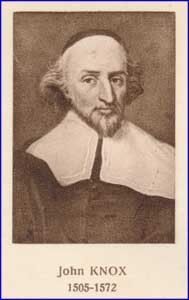The First Presbyterian Church of Jackson was organized on a Saturday afternoon, April 8, 1837 by the Reverend Peter Donan and four persons: Mrs. Margaret E. Mayson, Mrs. Susan Patton, and John Robb and his wife, Marion. The organization meeting was held in “the Old State House,” Mississippi’s first capitol, a small two-story structure on the northeast corner of E. Capitol and N. President Streets. Peter Donan continued as the church’s pastor for four years. There were no elders for two years, no deacons for six years, nor a Presbyterian house of worship for nearly nine years. In the first two years of its existence, the church had but three new members.
In 1841, Reverend Donan was followed by Reverend S. H. Hazard, who was pastor for little more than one year. He was succeeded by the Reverend Leroy Jones Halsey, a dynamic man and preacher, under whose ministry the congregation commenced to grow. Halsey spurred the building of the first sanctuary on the northwest corner of North State and Yazoo Streets. When Dr. Halsey resigned in 1848, the pulpit was supplied until February 22, 1849. The congregation then called as pastor the Reverend Isaac James Henderson, who served until he was succeeded by the Reverend L. A. Lowry on December 3, 1853. Mr. Lowry was a fine pastor and effective preacher, but died of Yellow Fever after but two years service. The pulpit was supplied from March, 1855, until a call was extended to the Reverend John Hunter on January 24, 1858.
[For more on the history of First Presbyterian Church, Jackson, MS, see the church web site.]
Words to Live By:
Blessed Zion: First Presbyterian Church, Jackson, Mississippi, 1837-2012, is a wonderful church history, written by Dr. Sean Lucas and published early in 2013. The book’s preface alone would be worth the purchase price, in my estimation. There Dr. Lucas summarizes several lessons drawn from the writing of this history:
1. It only takes one generation for a church to die. The reasons may vary: “a poor pastoral choice; a failure to continue to preach God’s Word faithfully; a transition in the church’s understanding of mission; an inability to see and adapt to the neighborhood around it.” By the grace of God, First/Jackson has been blessed in making many right choices over the many years.
2. The quality of the ruling elders who serve the church. These men who form the Session of the church must be talented, godly men.
3. The value of long-term pastorates, allowing for great stability, space for godly pastors to “to shape the theological and experiential perspective of the congregation in favor of the grand, winsome, evangelical truths of Reformed Christianity,” and enabling pastors to earn the long-term trust of their congregation.
4. What Dr. Lucas calls “The Road Not Taken,” i.e., knowing that mistakes, even disastrous ones, can be so easily made, we must recognize and rely upon God’s mercy and blessing. We note that Rev. Peter Donan, the founding pastor of First/Jackson, later departed from the Reformed Faith, but in God’s providence, that was some years later and by that time he had no influence on the life of this congregation. “Churches that stand faithful through the generations are those that seek men who are faithful to the Scripture, true to the Reformed faith, and obedient to the Great Commission.”
5. The blessings of evangelical Presbyterianism. A great church will not “major in the minors” but will focus on proclaiming Christ and Him crucified.

